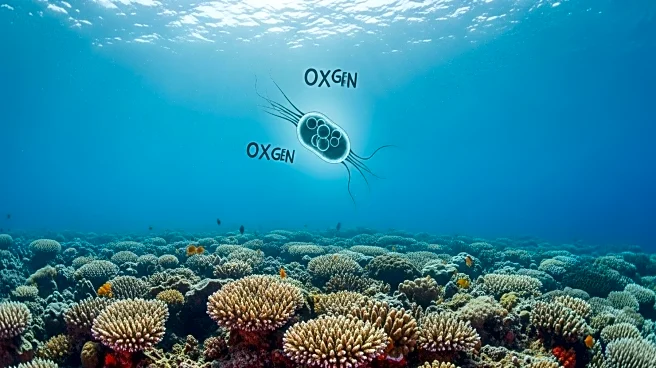What is the story about?
What's Happening?
A study has revealed that rising ocean temperatures threaten Prochlorococcus, a microbe responsible for nearly a third of Earth's oxygen production. Prochlorococcus thrives in warm, nutrient-poor tropical waters but struggles in temperatures above 30°C. The study, conducted by researchers using a flow cytometer, found that cell division rates slow significantly in warmer waters, potentially reducing oxygen production. This could impact marine food webs, as Prochlorococcus forms a vital foundation. The study suggests that Prochlorococcus productivity could fall by up to 51% in the tropics under severe warming scenarios.
Why It's Important?
Prochlorococcus plays a crucial role in global oxygen production and marine ecosystems. Its decline due to ocean warming could disrupt food webs, affecting marine biodiversity and fisheries. The potential shift in habitat towards the poles may alter ecological balances, impacting species that rely on Prochlorococcus. This highlights the broader implications of climate change on oceanic life and the need for urgent action to mitigate rising temperatures. The study underscores the importance of understanding and preserving key organisms that contribute to Earth's oxygen supply.
What's Next?
Researchers aim to explore the resilience of Prochlorococcus and potential heat-resistant strains. Further studies are needed to assess the long-term impacts of ocean warming on marine ecosystems and oxygen production. Conservation efforts may focus on protecting habitats and reducing carbon emissions to mitigate temperature rise. The findings could influence policy decisions regarding climate change and ocean conservation, emphasizing the need for global cooperation to address environmental challenges.
















